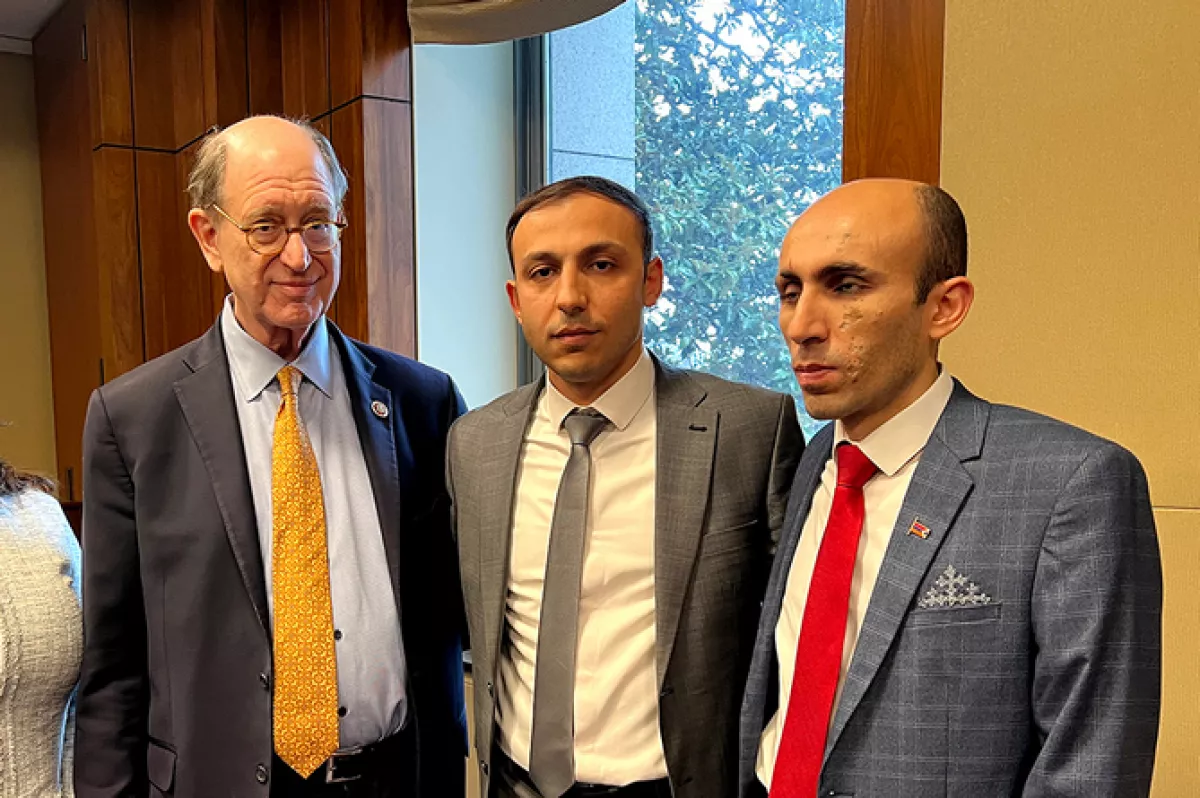Congressman Sherman’s pro-Armenian politics A barrier to US interests in the South Caucasus
Senior member of the House Foreign Affairs Committee, Democrat Brad Sherman, has been elected Vice Chair of the Congressional Caucus on Armenian Issues. The U.S. Congressional Caucus, which includes over 100 members, focuses on strengthening Armenian-American relations and promoting Armenian issues.
“I am honored to serve as the Democratic Vice Chair of the Congressional Armenian Caucus. For nearly three decades, I have dedicated myself to strengthening the ties between the United States and Armenia, combatting anti-Armenian hate, and advocating for the Armenian American community. As Vice Chair, I look forward to building on this legacy, working with my colleagues towards a future of democracy, security, and prosperity for Armenia and its people,” Sherman stated.
Yes, he is indeed speaking the truth. Brad Sherman is a politician who has been a staunch supporter of Armenians, as well as an advocate for LGBTQ rights. Since 1997, he has served as a congressman from the Democratic Party in the U.S. House of Representatives. Currently, he represents California’s 30th Congressional District in the San Fernando Valley, Los Angeles County—a region known for its significant population of ethnic Armenians, many of whom are potential voters for Sherman.

It is therefore not surprising that Brad Sherman has long been an active advocate for Armenia's interests. He did so even during the time when 20% of Azerbaijan’s territory was under occupation. Sherman was one of the proponents of extending the notorious Section 907 of the Freedom Support Act and supported the annual allocation of official financial aid to the separatists in Karabakh.
Moreover, he has repeatedly lied deliberately, distorting the causes and consequences of the Armenian-Azerbaijani conflict. For example, in October of last year, he made a blatantly provocative statement: “We need to arm Armenia now, with appropriate defensive weapons, to deter invasion,” he wrote on his microblog on X. What invasion?! The Armenian-Azerbaijani conflict has never taken place on Armenian territory—it has always occurred on Azerbaijani land!
Sherman’s statement came despite Armenian Prime Minister Nikol Pashinyan having recognized Azerbaijan's sovereignty and territorial integrity. Furthermore, the Speaker of Armenia’s Parliament, Alen Simonyan, recently acknowledged that Azerbaijan liberated its territories in full compliance with the UN Charter. Yet none of this stops Sherman from making yet another series of anti-Azerbaijani remarks.

In April of 2024, Sherman declared that it was necessary to increase aid to Armenians who had left the Karabakh region while simultaneously cutting aid to Azerbaijan. The latter point was particularly amusing, as "aid" from the United States is virtually nonexistent in Azerbaijan. As for assistance to the aforementioned group of Armenians, many of them are choosing not to stay in Armenia but rather to leave in search of better opportunities elsewhere.
At the same time, we observe that American military experts are nurturing the Armenian army, while persistent attempts are being made to portray Armenia as a "pro-Western" country. This is despite the fact that Armenia's largest foreign trade partners are Russia (with a trade turnover of $10.88 billion from January to October 2024, reflecting a 91.4% increase compared to the same period in 2023) and Belarus ($173.03 million, an increase of 7.5%). Armenia also remains a member of the Eurasian Economic Union (EAEU).
And what about the EU? Armenia's trade turnover with EU countries during the reporting period of 2024 amounted to $1.92 billion, showing a decline of 14.9%. For comparison, Azerbaijan's trade turnover with European countries from January to November 2024 exceeded $26.23 billion, with European countries accounting for 53.29% of the republic's total foreign trade. Economic indicators clearly demonstrate who is closer to the "Western" world.
But recognizing the obvious is not Congressman Sherman’s forte. In general, he acts contrary to the foreign policy interests of the United States, which should be focused on the rapid and widespread development of relations with Azerbaijan, the undisputed economic, political, and military leader in the South Caucasus. This is especially true now, as Türkiye's influence in the Middle East continues to grow. The United States cannot fail to understand the strength of the Azerbaijan-Türkiye tandem.
Nonetheless, we see completely irrational actions from many American congressmen and senators. This reality is nothing short of regretful, but we are well aware that Azerbaijan has successfully achieved a crucial goal—restoring territorial integrity—despite their machinations. Moreover, the implementation of many vital regional projects, the benefits of which are now enjoyed not only by Azerbaijan but also by Türkiye, Georgia, and other countries, was also achieved despite the obstacles put in place by American, primarily pro-Armenian, politicians. Therefore, we are ready for the new twists and turns from Sherman and other congressmen.








